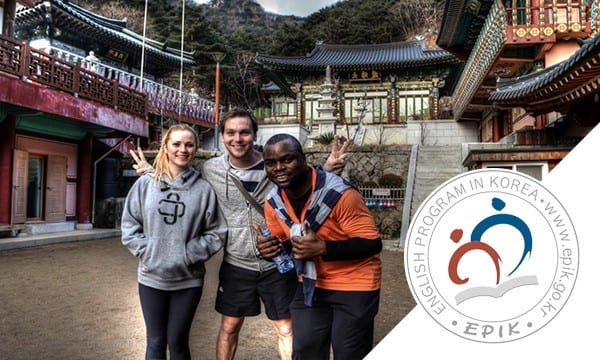Korean culture is collective. Family, social connections, and a feeling of oneness are extremely important in Korean society. Most Western cultures, by contrast, are individualistic.
Growing up in New York, I am taught to value uniqueness and creativity. So the Korean emphasis on sameness did not appeal to me right away.
Find Hagwon Teaching Jobs in South Korea
The feeling of “otherness” I got was heightened by the lack of ethnic diversity I found in Korea. It was impossible to blend in even if I spoke and acted like Koreans, which I didn’t. Among other things, it took me a little while to make a habit of bowing to people when I met them.
In major cities, it is less so, as there are more foreigners, either military or teachers around. But in the small town where I lived, I am the first non-Korean person many of the people in that town had ever seen, and it is apparent.
Experiences in Korea
I am often stared at or greeted by strangers in the street. Several people wanted to touch my hair, skin, or tattoos. It is simply because they saw anyone who looked like me before.
On that note, my job did not require tattoos to be covered, but I quickly realized that it was much more productive for my lessons if I did.
I only have a few, and they are nothing shocking by American standards, but tattooing was illegal in Korea for some time because of its past connections with gang activity, so any visible tattoos can be an instant source of intrigue and scandal.
Anyway, though these advances from strangers were unwelcome at times, they mostly stemmed from curiosity, not ill intent.
Supermarkets and queues of any kind were also quite different from home. People routinely bumped right into me walking down the grocery aisles, without any kind of acknowledgment, and line cutting seemed totally normal.
At first, I was offended that people thought they could be so impolite just because I am a foreigner. As I observe, the more I realized those people were behaving that way towards everybody around them, not just me.
This goes hand in hand with the collectivist idea, that you are just somebody at the supermarket, a stranger, and not part of the inner circle or community that the pushy person in question is concerned with at all. The point is, this is likely to happen to you, try your best not to take it personally.
The Best TESOL Courses for South Korea
The thing that struck me as the strangest throughout my time in Korea was that lack of variety was present in a lot of aspects of life. Clothing stores all seemed to sell the exact same t-shirts; restaurants all seemed to serve the exact same types of food.
Food in Korea
Basically, trends seem more intensely trendy than I use to. More detail on shopping and food will follow in later posts, but I’ll just say that the obsession Westerners have with individuality extends directly to our expectations of consumer goods, and it follows that the Korean emphasis on conformity would affect the options (or lack of options) available there too.
The good thing is that if you only know how to make 3 dishes. You can bet on shining examples of quality in those 3 dishes.
The flip side of collectivism is that many Koreans will treat you like family once you form a connection of some kind. When you do become part of someone’s inner circle, they will generally go way out of their way to help you however they can, and they will expect the same from you in return.
And it’s worth it! It’s great to have such considerate friends. It is a wonderful way for a whole society to function, looking out for one another all the time.





